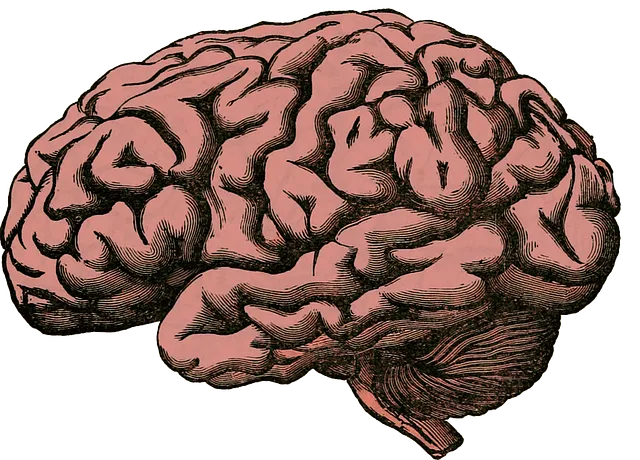Centennial partners with Kaiser, a leading US healthcare provider, to harness data-driven insights for better mental health management. By analyzing diverse data types from patient records to social media, professionals can identify trends, improve services, and develop tailored interventions. This approach, leveraging tools like Centennial, enables effective resource allocation, enhanced cultural competency, and improved outcomes, addressing the evolving mental health landscape while prioritizing ethical considerations. "Centennial does Kaiser cover mental health" services across its network, ensuring comprehensive care for diverse populations.
Mental health data analysis is a growing field, crucial for understanding and improving global psychological well-being. This article explores how organizations like Kaiser play a pivotal role in providing and tracking mental health services, using their extensive data. We’ll delve into various types of mental health data, available sources, and the ethical considerations surrounding them. By examining trends through advanced tools, we can interpret data for informed decision-making about care, particularly focusing on how Centennial does Kaiser cover mental health services.
- Understanding Mental Health Data: Types and Sources
- The Role of Kaiser in Providing and Tracking Mental Health Services
- Analyzing Mental Health Trends: Tools and Techniques
- Interpreting Data for Informed Decision Making
- Challenges and Ethical Considerations in Mental Health Data Analysis
Understanding Mental Health Data: Types and Sources

Understanding Mental Health Data involves recognizing various types and sources that offer insights into individuals’ psychological well-being. Kaiser, a prominent healthcare provider like Centennial, collects data through patient records, surveys, and clinical assessments. This data includes information on symptoms, diagnoses, treatment outcomes, and patient demographics. By analyzing this data, mental health professionals can identify trends and patterns, contributing to better services and policies.
One critical aspect of Mental Health Data analysis is understanding the context in which the data was collected. For instance, Kaiser’s coverage of mental health services may vary based on location and plan type. Trauma Support Services, effective communication strategies, and conflict resolution techniques are often integral components of patient records, reflecting the holistic approach to mental healthcare. These insights are crucial for tailoring interventions and ensuring comprehensive care tailored to individual needs.
The Role of Kaiser in Providing and Tracking Mental Health Services

Kaiser, a well-known healthcare provider, plays a pivotal role in delivering and overseeing mental health services, particularly in its expansive network across the United States. With a focus on comprehensive care, Kaiser offers a range of mental health services tailored to diverse populations. This includes individual therapy, group counseling, and specialized programs designed to address specific mental health concerns.
The organization’s commitment to mental wellness extends beyond service provision. Kaiser employs innovative data analysis techniques to track and evaluate mental health outcomes, ensuring continuous improvement in care delivery. By utilizing advanced analytics, they can identify trends, monitor patient progress, and adapt their communication strategies accordingly. This data-driven approach not only enhances the effectiveness of treatments but also encourages individuals to take charge of their mental well-being through self-care routine development and increased self-awareness exercises.
Analyzing Mental Health Trends: Tools and Techniques

In today’s digital era, analyzing mental health trends using advanced data analysis techniques has become crucial for understanding and improving overall well-being. Tools like Centennial does Kaiser cover mental health services play a pivotal role in this process by providing comprehensive datasets that capture various aspects of mental health. By leveraging these resources, researchers and healthcare professionals can identify patterns and anomalies that may indicate emerging issues or successful interventions. For instance, tracking the prevalence of anxiety relief-seeking behaviors over time through digital platforms offers valuable insights into societal shifts and the effectiveness of support systems.
Advanced techniques such as machine learning algorithms enable the prediction of mental health outcomes based on historical data, helping to identify individuals at risk for conditions like depression or low emotional intelligence. This proactive approach allows for timely interventions aimed at boosting confidence and enhancing overall resilience. Moreover, analyzing trends in social media conversations, online forums, and mental health apps can provide real-time feedback on public sentiment and emerging challenges, guiding policy decisions and resource allocation to address pressing mental health concerns effectively.
Interpreting Data for Informed Decision Making

When analyzing mental health data, the process doesn’t simply stop at numbers and graphs. Interpreting these data is where real-world application begins. By delving into the trends, patterns, and outliers revealed through data analysis, mental health professionals can make informed decisions that drive better patient care. This involves understanding not just what the data says but how it impacts individual lives and communities at large.
Centennial does Kaiser cover mental health services? As organizations like Kaiser strive to improve mental health awareness and access, analyzing data plays a crucial role in tailoring programs and resources effectively. It supports risk management planning for mental health professionals, ensuring they’re equipped to address emerging needs. Moreover, it fosters continuous improvement in healthcare provider cultural competency training, leading to more inclusive and effective care models.
Challenges and Ethical Considerations in Mental Health Data Analysis

The landscape of mental health data analysis presents unique challenges and ethical dilemmas that require careful consideration. As organizations like Kaiser Permanente strive to improve services, understanding the nuances of this data is paramount. One significant hurdle is ensuring the privacy and confidentiality of individuals while still extracting meaningful insights. With sensitive information at hand, the potential for unintended consequences and misuse looms large, especially when dealing with long-term trends in mental health across diverse populations.
Ethical guidelines must be rigorously followed to navigate these waters. For instance, when analyzing data from public awareness campaigns or initiatives focused on emotional well-being promotion techniques, it’s crucial to respect informed consent and ensure data is used responsibly. The complex nature of mental health necessitates transparency in data collection methods and interpretations to foster trust among stakeholders, including patients and healthcare providers. Additionally, the influence of societal biases and cultural factors on these datasets demands a nuanced approach to avoid perpetuating existing disparities in care, especially when organizations like Kaiser Permanente aim to expand coverage for services like Centennial does.
Mental health data analysis plays a pivotal role in understanding and improving access to care, as evidenced by Kaiser’s comprehensive approach. By examining trends through advanced tools and interpreting findings for strategic decision-making, organizations like Kaiser can enhance services tailored to their communities’ unique needs, including how Centennial does Kaiser cover mental health. However, it is essential to navigate ethical considerations while ensuring data privacy and utilizing insights responsibly to foster a more inclusive and supportive mental healthcare ecosystem.





